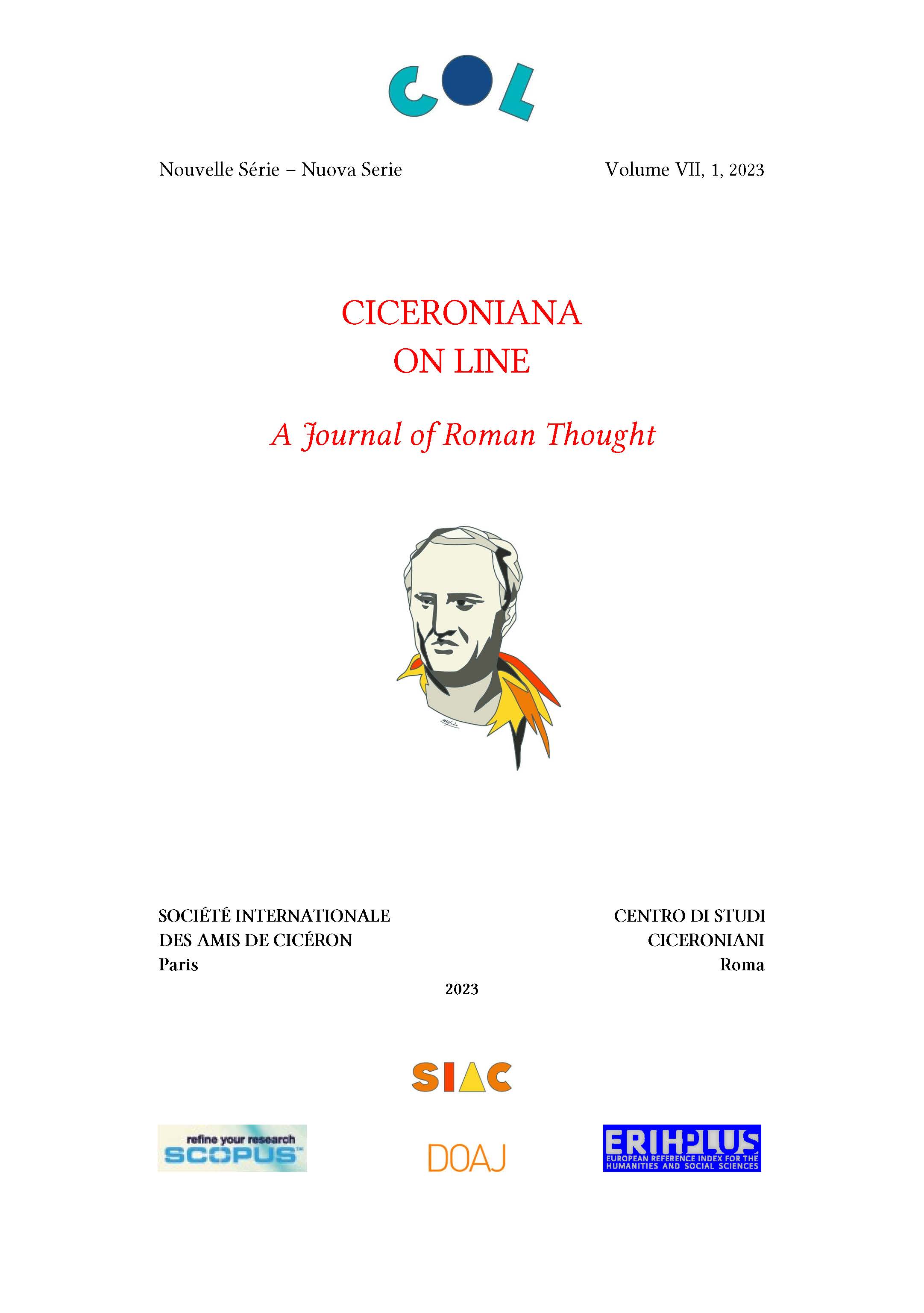Cicero’s De Divinatione in Religious and Historical Perspective
DOI:
https://doi.org/10.13135/2532-5353/7737Abstract
The article argues that the imperial expansion of the Late Roman Republic is reflected in Cicero’s philosophical texts by example of De divinatione. The expansion of Rome made it necessary to consider what it meant to be Roman and what Roman practices are, especially confronted with other, alien practices that might seem similar. Cicero offers his texts as an admonition to consider religious practices – here: divination – the Romans might encounter in the provinces and how to deal with them, to consider their usefulness while also bearing in mind the latent danger in not doing them right or exceeding the religious need which upholds the pax deorum. Being put in the context of the expanding empire, the article makes sense of the multiple non-Roman examples cited especially in Book 1 of the treatise De divinatione.
Downloads
Downloads
Published
How to Cite
Issue
Section
License
Authors who publish with this journal agree to the following terms:
- Authors retain copyright and grant the journal right of first publication with the work simultaneously licensed under a Creative Commons Attribution License that allows others to share the work with an acknowledgement of the work's authorship and initial publication in this journal.
- Authors are able to enter into separate, additional contractual arrangements for the non-exclusive distribution of the journal's published version of the work (e.g., post it to an institutional repository or publish it in a book), with an acknowledgement of its initial publication in this journal.


 Ciceroniana On Line is recognised by ANVUR (the National Agency for the Evaluation of the University System and Research) as a CLASS A journal for the Sciences of Antiquity, Philology, Literature and History of Art (
Ciceroniana On Line is recognised by ANVUR (the National Agency for the Evaluation of the University System and Research) as a CLASS A journal for the Sciences of Antiquity, Philology, Literature and History of Art ( The journal is included in DOAJ. The DOAJ listing of the journals is available at
The journal is included in DOAJ. The DOAJ listing of the journals is available at  The journal is indexed in
The journal is indexed in  The journal has been included in ERIH PLUS. The ERIH PLUS listing of the journals is available at
The journal has been included in ERIH PLUS. The ERIH PLUS listing of the journals is available at 
